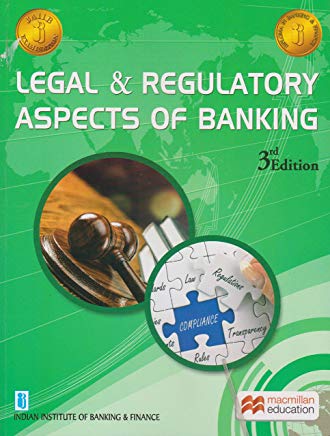JAIIB AFB Unit 23 - Operational Aspects of Cash/Clearing (Year: 2019)
Cash Replenishment at ATMs
Implementation of CTS
Cheque Truncation System (CTS) - Assures certain common minimum security features in cheques printed, issued and handled by banks and customers uniformly across the banking industry.
Accordingly, certain benchmarks towards achieving standardisation of cheques issued by banks across the country have been prescribed like – quality of paper, watermark, bank’s logo in invisible ink, void pantograph, etc., and standardisation of field placements on cheques. The benchmark prescriptions are collectively known as "CTS-2010 standard".
All banks providing cheque facility to their customers have been advised to issue only 'CTS-2010' standard cheques. Cheques not complying with CTS-2010 standards will be cleared at less frequent intervals i.e. weekly once from November 1, 2014 onwards.
Cheque collection policies
Local Cheques
Local cheques are payable within the jurisdiction of the clearing house and will be presented through the clearing system prevailing at the centre. Credit arising out of local cheques shall be given to the customer’s account as indicated in the Cheque Collection Policy (CCP) of the concerned collecting bank. Notwithstanding to the CCP, ideally, in respect of local clearing, banks shall permit usage of the shadow credit afforded to the customers’ accounts immediately after closure of the relative return clearing on the next working day or maximum within an hour of commencement of business on the third working day from the day of presentation in clearing, subject to usual safeguards.
Outstation Cheques
Maximum timeframe for collection of cheques drawn on state capitals/major cities/other locations are 7/10/14 days respectively.
If cheques/instruments lost in transit/in clearing process
If cheques are lost in transit or in the clearing process or at the paying bank's branch under physical instrument delivery clearing, the bank should immediately bring the same to the notice of the presenting customer (beneficiary)’s notice so that the customer can inform the drawer to record stop payment and can also take care that other cheques issued anticipating the credit arising out of the lost cheque are not dishonoured due to non-credit of the amount of the lost cheques / instruments.
In CTS, if the instrument is lost after lodging with the collecting bank but before truncating the same for sending through image based clearing, the presenting bank should follow the procedure indicated above.
The customer is entitled to be reimbursed by banks for related expenses for obtaining duplicate instruments and also interest for reasonable delays in obtaining the same.
Cash and its custody
- Cash and small coin balances must be kept in the strong room in the joint custody.
- No member of staff other than cashier/teller should receive money over the counter.
- Strong Room and safe must be under the double lock of the Cashier and Supervising Official.
- Bulk of Cash balances should always be in the strong room/safe in the joint custody. Cashier Hand balance will be kept as low as possible.
Checking of Cash Balance
Before taking notes and coins into "Joint Custody", the supervising official will :
- Personally count all notes of denominations above Rs. 10.
- Count all other notes on the "clip system".
- Have all bags of coinsweighed in his presence.
- Take and count fewpieces and leave the reminder to be counted in his presence on the "clip system".
- Invariably check the entire Head Cashier's/Cashier's hand balance of loose notes.
- Assure that Head Cashier's/Cashier's hand balance are kept in the cash box and locked in his presence.
At the close of working day, verify that the "Joint Custody balance" corresponds exactly with the entries in the Cash Balance Book.
Before the safe is closed, the supervising official, Head Cashier and Cashier should check the bundles and verify the same with the Reserve Cash Register.
Shortage or Excess in Cash
- Any shortage in the cash balance should be recovered on the same day from the Head Cashier/Cashier.
- Failing recovery on the same day, the amount of shortage should be debited to Suspense Account taking the signatures of the members responsible under report to the Head Office.
- Head Cashier/Cashier is responsible for any shortage either in Hand or Vault Balance.
- Cashiers signed the Denomination Slips will be responsible for any shortage in book of notes.
- Any excess in the Cash Balance must be credited to Sundry Creditors Account on the same day.
Remittance of Cash
When remittances of currency notes are sent from one office to another, following instructions must be strictly complied with :
- Should not be allowed to be carried without and armed guard.
- Always entrusted to an authorised employee with experienced subordinate staff and armed guard.
- Night journeys and unusual halts at junctions should be avoided.
- Remittance box should always be conveyed in the van provided.
- The box should be securely chained and locked.
- A register should be maintained to record all cash remittances.
Clearing Operation
Prerequisites for sending cheques for clearing
- All the instruments presented through the clearing should bear the "Clearing" stamp with Bank and Branch and date.
- Bank crossing stamp with MICR code.
- Verify the name of the payee and on pay-in-slip which should be one and the same.
- Verify the amount on the cheque and on pay-in-slip which should be one and the same.
- Cheques with a/c payee crossing must be collected to the payee a/c only.
- Send the unpaid Return Cheques through the branch courier to reach the clearing branch before stipulated time.
Follow all the specified instructions for :
- Inward clearing cheques
- Outward clearing cheques
- High Value clearing
- Electronic Clearing System (ECS)
- Clearing House Account Reconciliation
- Balancing of Clearing House Account
JAIIB Study Material
| JAIIB Paper 1 Study Material |
| JAIIB Paper 2 Study Material |
| JAIIB Paper 3 Study Material |


